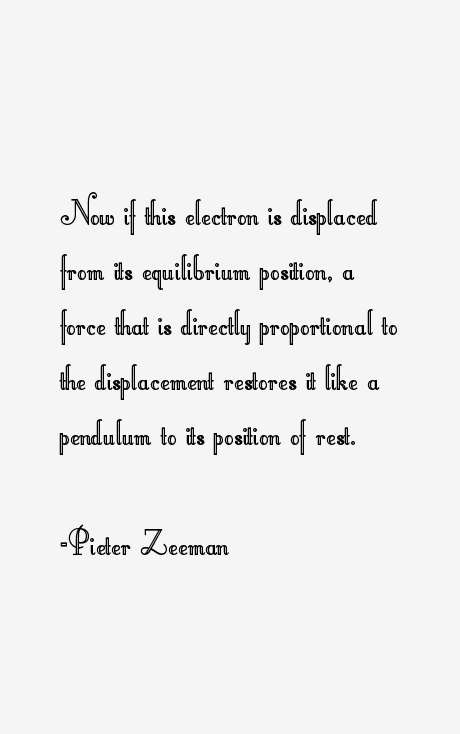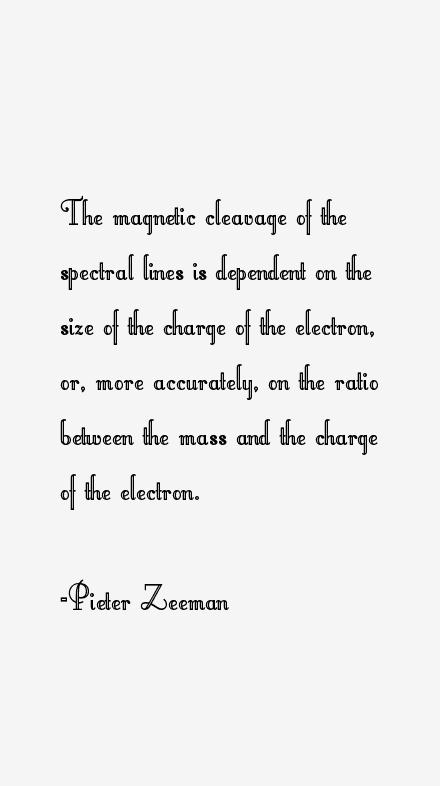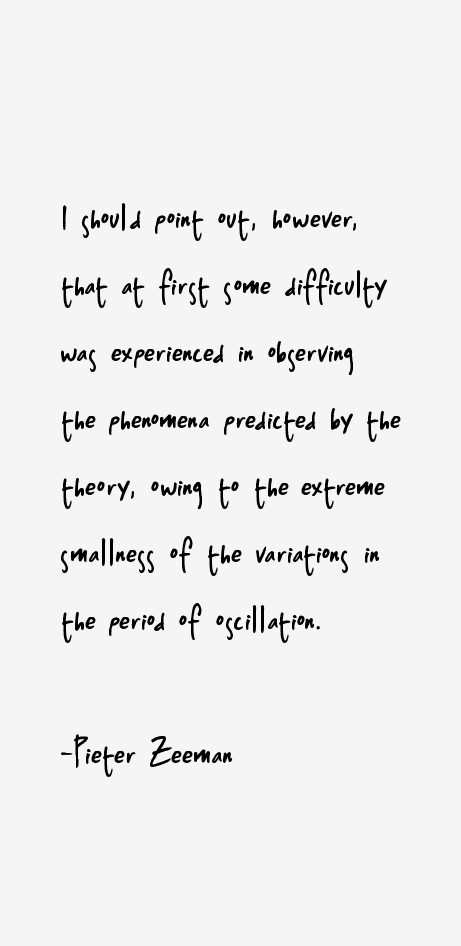Pieter Zeeman Quotes & Sayings
14 most famous Pieter Zeeman quotes and sayings (physicist). These are the first 10 quotes we have.
“According to well-known electrodynamic laws, an electron moving in a magnetic field is acted upon by a force which runs perpendicular to the direction of motion of the electron and to the direction of the magnetic field, and whose magnitude is easily determined.”

“Now if this electron is displaced from its equilibrium position, a force that is directly proportional to the displacement restores it like a pendulum to its position of rest.”

“The magnetic cleavage of the spectral lines is dependent on the size of the charge of the electron, or, more accurately, on the ratio between the mass and the charge of the electron.”

“Nature gives us all, including Prof. Lorentz, surprises. It was very quickly found that there are many exceptions to the rule of splitting of the lines only into triplets.”

“The rotation of the polarization plane is extraordinarily small in all gases, thus also in sodium vapour.”

“I should point out, however, that at first some difficulty was experienced in observing the phenomena predicted by the theory, owing to the extreme smallness of the variations in the period of oscillation.”

“In the absence of a magnetic field the period of all these oscillations is the same. But as soon as the electron is exposed to the effect of a magnetic field, its motion changes.”

“Now all oscillatory movements of such an electron can be conceived of as being split up into force, and two circular oscillations perpendicular to this direction rotating in opposite directions.”

“Moreover, photography has made it possible to fix these images and now provides us with a permanent record of each observed spectrum, which can be measured out at any time.”
“I count myself fortunate to be able to contribute to this work; and the great interest which the Royal Swedish Academy of Sciences has shown in my work and the recognition that it has paid to my past successes, convince me that I am not on the wrong track.”
Pieter Zeeman Quotes Rating
No Ratings Yet
Leave A Comment
























